 | 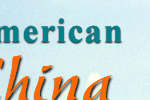 | 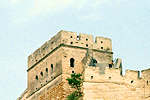 | 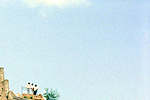 |
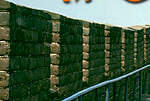 | 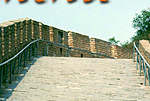 | 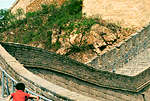 | 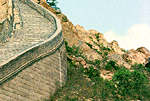 |
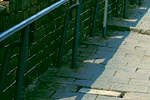 | 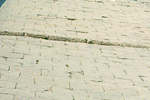 | 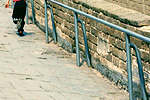 | 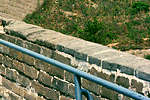 |
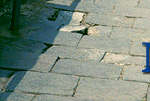 | 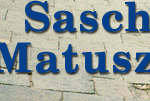 |  | 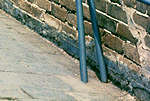 |
|
May 16, 2003 Powers Behind the Thrones |
|
General Zhu of the Chinese Air Force is from Canton, but today he is sitting in tiny little Xinjin city, just south of Chengdu, hosting a small banquet of friends and family. Two majors are concentrating hard on providing the General with choice morsels and keeping his cup of baijiu full. The General waves them all off, for he is holding forth: "The Americans have never been successful militarily in an Asian war." He grunts as I mention Japan – this was as much a Chinese victory. He is more interested in discussing Vietnam, and, of course, the Korean War, in which China came to the aid of her neighbor and drove the Americans back. Regardless of the lopsided casualties and the fact that South Korea remained "free," the Korean War was a victory for the Chinese and their North Korean brothers over the Western powers. One of the majors murmurs admiringly that the Americans have defeated both the Taliban and Saddam's armies with extremely few casualties. The General scoffs into his tiny shot glass. "The American shouldn't hope for the same success here, they would die in great numbers." For the past 50 years, the sacrifice of Chairman Mao's son during the Korean War has been a symbol of what the Chinese are prepared to do to resist foreign invasion and domination. Out of the ashes of WWII and the turn of the century has risen a dragon intent on stamping out any whimsical Western dreams of the paper tiger Ever Victorious Armies China was so infamous for during the colonial periods. But the Bush Administration isn't facing the dragon. China is in fact using its considerable influence over North Korea to help the Bushies avoid "death in great numbers" and all the other beauties that accompany war. And even if General Zhu is basking in the glory of a new Chinese army, much more capable than the armies of the past, he isn't planning on using that army to confront the US. In fact, the General enjoys telling stories about all the US Air Force Generals he has entertained and reduced to witless staggerers-about with his baijiu drinking prowess. If the Chinese remember the Korean War as a victory, what do the North Koreans think? Chinese are at least connected to the outside world and are prepared to hash out different perspectives, whereas the North Korean Army is confident enough to state that any belligerent move on the part of the Americans (sanctions, bombings, troop movements, rampant displays of the middle finger along the DMZ) would result in war. They almost seem eager for it to happen. After the first round of talks between the representatives of the Rogue and the Emperor, analysts and bureaucrats and spooks were running around trying to make sense of the North Koreans' latest taunt: "We got more nukes." Is it a bluff? Is it true? Would they use them? The US has already admitted that they didn't know about Yongbyon reopening for business until after the North Koreans told them. They also rushed into a cave that was supposed to be filled with goodies, only to find it empty, among other I Spy blunders. With all the eyes in the sky that the US has, North Korea has still managed to carry on with all sorts of nefarious activities. Most likely including brainwashing North Korean soldiers into believing that they can emulate the success of their forefathers and drive the barbarians into the sea, should they dare to cross the DMZ. Singapore's Prime Minister Goh Chuk Tong seems pretty optimistic, which makes me feel better. But not many people really know what is happening in North Korea, what the people and the soldiers think or even know about the whole crisis on the peninsula. Aidan Foster-Carter does describe North Korea's Stalinism in the Asia Times – does North Korean Stalinism bode well for a diplomatic solution? Foster-Carter contends that the North Korean leadership is isolated enough to believe they are "fighting the good fight." Could it be that the Dear Leader is not truly the leader after all and a cabal of hard-core Stalinists (i.e. the Army upon which Old Kim so dearly depends) is running the show and forcing confrontation with the US? Behind the scenes leadership is nothing new – in the East or the West. A Stalinistic Army with a "history of defeating the US," a couple of nukes and a starving, broke population may just be crazy enough to want a war – or get close enough to scare the US, Japan and their squabbling brothers to the South into caving in to their demands. But, being isolated and all, perhaps the North Korean Army hasn't heard of Wolfowitz, Rumsfeld and Cheney, the power behind the throne across the sea. How ironic – two opposing leaders maneuvered into less than advantageous positions by hard-line cabals armed with ideology and nationalism. Who was it that wrote that "axis of evil" speech anyway? –Sascha Matuszak
Please Support Antiwar.comSend contributions to Antiwar.com or
Contribute Via our Secure Server Your contributions are now tax-deductible
|
Sascha Matuszak
is a teacher living and working in China. His articles have appeared
in the South China Morning Post, the Minnesota Daily,
and elsewhere. His exclusive Antiwar.com column (usually) appears
Fridays. Archived columns Powers
Behind the Thrones Know
When to Lie, Know When to Shoot Straight Rumors
and Leavetakings 'Americans
Like War, Huh?' A
Beautiful Morning for a War Soft
Power Moves Abroad The
Safest Place in the World Smiles
and Nods and Handouts China:
Straddling the Fence Just Right Merry
Christmas from China Don't
Believe the Hype Jiang's
Theory Is a Smokescreen 'We
Make You Play Bad Card' The
Future of East-West Rapprochement Tiananmen's
Legacy: The Forgotten Rebellion Deciphering
the Chinese Smile Why
China Can Disregard US Anger Arming
the World: What the US Fears 1.3
Billion Problems For China China's
New Post-9/11 Status
Sweep 'Em Off the Streets
Chinese Embrace Progress China's
Afghan Agenda New
War May Reveal New Superpower, Part II New
War May Reveal New Superpower A
Chance for a New Friendship? Cheating
as a Way of Life China's
Internet Generation Free
Markets or Supermarkets Sailing
Towards World Significance China's
Youth Revolution |
